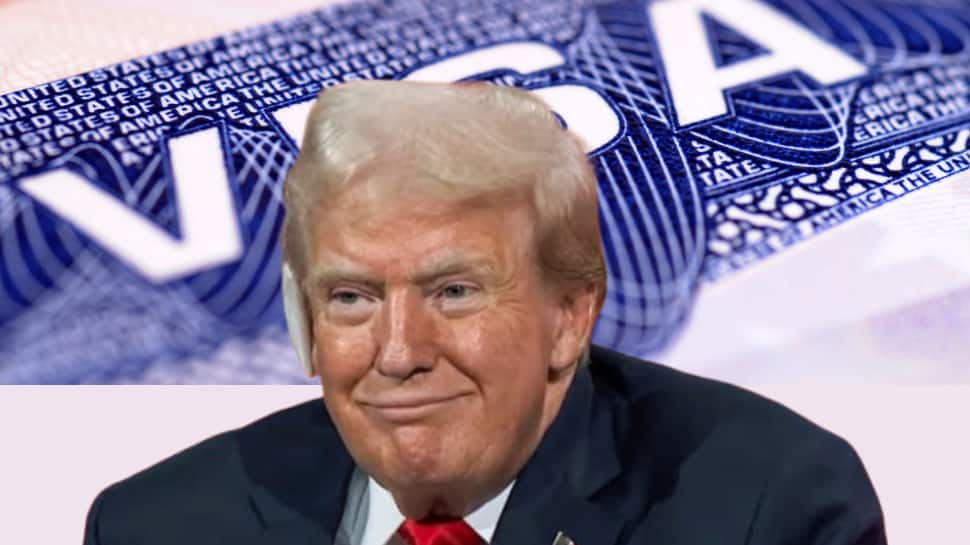The United States Department of Homeland Security (DHS) has recently issued important guidance regarding the controversial USD 100,000 application fee for the H-1B visa, a development that has stirred significant attention and debate. This announcement follows a series of legal challenges and public confusion surrounding the fee, which was first introduced by former President Donald Trump as part of a broader proclamation aimed at encouraging the hiring of American workers. The new guidelines clarify who will be affected by this fee and provide much-needed relief to current H-1B visa holders.
The H-1B visa program allows U.S. employers to hire foreign workers in specialty occupations that require theoretical or technical expertise, such as in IT, engineering, and science. The introduction of the hefty USD 100,000 fee sparked widespread concern among employers and visa applicants, as it was perceived to place a heavy financial burden on companies relying on highly skilled foreign workers.
### Clarifications on the USD 100,000 Application Fee
According to the new guidance from DHS, the USD 100,000 fee will only apply to new H-1B visa petitions filed by individuals who are outside the United States and do not currently hold a valid H-1B visa. This means that the fee will not impact those who are already in the U.S. on an H-1B visa or those applying for extensions, amendments, or changes of status within the country.
Specifically, the DHS clarified that workers who switch to H-1B status from other visa categories, such as the F-1 student visa, will not be subject to this fee. Additionally, existing H-1B visa holders seeking an amendment to their visa, a change in their status, or an extension of their stay in the U.S. are exempt from paying this fee. Perhaps most reassuringly, the guidelines confirm that current H-1B holders will not face any restrictions on entering or leaving the United States.
This clarification aims to dispel earlier confusion triggered by President Trump’s initial statement when signing the proclamation in September 2023. At that time, Trump emphasized that the “incentive is to hire American workers,” which some interpreted as potentially affecting all H-1B visa holders, including those already employed in the U.S. The White House later issued a statement to news agency IANS, explaining that the USD 100,000 fee is a “one-time” charge applicable only to new visa petitions and not to renewals or existing visa holders.
To facilitate compliance, the DHS has also provided an online payment portal for applicants required to pay the fee, streamlining the application process for new H-1B visa seekers abroad.
### Legal Challenges Against the New Fee
The introduction of this substantial fee has not gone unchallenged. Just two days prior to the DHS’s guidance release, the U.S. Chamber of Commerce filed a lawsuit against the Trump administration’s new H-1B visa rules in a Washington district court. The Chamber of Commerce argued that the USD 100,000 visa fee, if implemented, would cause significant harm to American businesses by forcing them to either dramatically increase labor costs or reduce their hiring of highly skilled foreign workers — many of whom do not have readily available domestic replacements.
The lawsuit contends that the September 19 proclamation imposing the fee is “plainly unlawful” and could inadvertently benefit America’s economic rivals by making it harder for U.S. firms to attract and retain top global talent. This legal challenge is the second major domestic opposition to the new H-1B visa rules. Earlier in October, a coalition of unions, educational professionals, and religious organizations also sued the administration, expressing concerns about the impact of the new regulations on their constituencies.
These lawsuits underscore the tension between the administration’s stated goal of prioritizing American workers and the practical needs of U.S. businesses that rely on the H-1B visa program to fill critical skill gaps in the workforce.
### Impact on Indian Workers in the U.S.
A significant portion of H-1B visa recipients are Indian nationals. In fact, India-born workers received over 70% of the total approved H-1B visas in 2024, highlighting the visa’s importance to Indian professionals seeking employment opportunities in the United States.
Given the prominence of Indian workers within the H-1B visa system, the new guidelines and ongoing legal developments are closely watched by the Indian community and stakeholders. The reassurance that current H-1B holders will

